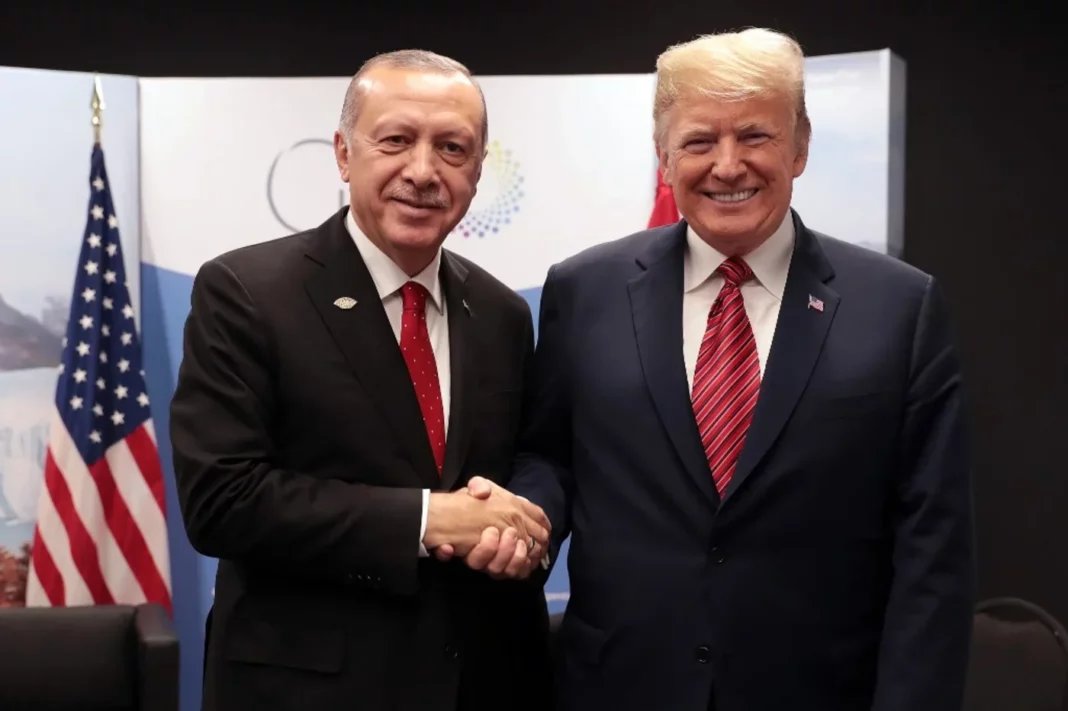Turkey has stopped short of condemning the US strikes on Iran, despite many of the Islamic Republic’s major allies, as well as several regional states, criticising the escalation and viewing it as a risky gambit.
US President Donald Trump said in a televised address late on Saturday that Washington had struck three of Iran’s nuclear sites in an effort to disable the Islamic Republic’s nuclear enrichment capabilities.
« I can report to the world that the strikes were a spectacular military success. Iran’s key nuclear enrichment facilities have been completely and totally obliterated, » Trump said, adding that Tehran needed to « make peace » as he threatened more intense attacks if it did not.
« There will be either peace or there will be tragedy for Iran far greater than we have witnessed over the last eight days, » he added.
Several hours after the attacks took place, Turkey’s foreign ministry warned that the strikes risked further destabilising the region’s security environment.
« Turkey is deeply concerned about the possible consequences of the US attack on the Islamic Republic of Iran’s nuclear facilities, » the ministry said.
« Ongoing developments could escalate the regional conflict to a global level. We do not want this catastrophic scenario to become reality. »
This measured tone stood in stark contrast to Turkish President Recep Tayyip Erdogan’s remarks a day earlier, in which he described the weeks-long Israeli strikes as « banditry ».
Although Ankara has long opposed Iran acquiring nuclear weapons, it has also consistently advocated for diplomatic solutions. Notably, in 2010, Turkey and Brazil brokered a nuclear fuel swap deal in an effort to defuse tensions.
« Iran’s pursuit of so-called nuclear deterrence, justified by its leaders as a necessary defence, is viewed in Turkiye as a dangerous gamble that could trigger a regional arms race, » wrote Murat Yesiltas, a security expert at the Seta think tank and a member of the Turkish Presidency’s Council on Foreign Relations, on Sunday.
« Turkey’s opposition to Israeli aggression does not imply tacit support for Iran’s nuclear ambitions. »
Long-term political considerations
Ankara has characterised Israel’s recent attacks on Iran’s facilities as unprovoked, particularly in light of reports that neither US intelligence nor the International Atomic Energy Agency (IAEA) believes Tehran is actively pursuing a nuclear weapon.
This explains why Turkish officials were quick to condemn the Israeli attacks, which they see as opening a new rift in the region and potentially provoking a broader war, especially following Israel’s attacks on Gaza, Lebanon and Syria.
According to Iranian state-run Nour News, citing Iran’s Ministry of Health, Israel’s strikes since 13 June have killed 430 people and injured around 3,500.
Israeli officials say at least 25 people in Israel have been killed by Iranian strikes and hundreds have been wounded..
Erdogan has instead sought to de-escalate the situation, and has held several phone calls with key leaders, including Iranian President Masoud Pezeshkian and Trump.
Through these conversations, Erdogan has positioned himself as a potential mediator, offering Istanbul as a venue for nuclear talks between the US and Iran.
However, the meeting ultimately did not take place, as Iranian Supreme Leader Ali Khamenei could not be reached to make a final decision, Turkish officials said.
The Turkish foreign ministry’s latest statement reflects Erdogan’s continued desire to host talks between the US and Iran.
« The only solution to the conflict regarding Iran’s nuclear programme is through negotiations, » the statement read. « Turkey is ready to fulfill its responsibilities and make constructive contributions. »
Despite his fiery rhetoric, Erdogan often walks a fine line in regional conflicts, seeking to avoid taking sides in order to position Turkey advantageously.
Turkey’s Nato membership and its ongoing close relationship with Washington give it leverage with both adversaries and allies in pursuit of its strategic goals.
« Turkey’s stance on the Israel-Iran conflict is not based on short-term political considerations, » Yesiltas said.
« The risks are not abstract. They include direct threats to [Turkey’s] territorial security, energy security, economic goals and demographic stability. »
However, the meeting ultimately did not take place, as Iranian Supreme Leader Ali Khamenei could not be reached to make a final decision, Turkish officials said.
The Turkish foreign ministry’s latest statement reflects Erdogan’s continued desire to host talks between the US and Iran.
« The only solution to the conflict regarding Iran’s nuclear programme is through negotiations, » the statement read. « Turkey is ready to fulfill its responsibilities and make constructive contributions. »
Despite his fiery rhetoric, Erdogan often walks a fine line in regional conflicts, seeking to avoid taking sides in order to position Turkey advantageously.
Turkey’s Nato membership and its ongoing close relationship with Washington give it leverage with both adversaries and allies in pursuit of its strategic goals.
« Turkey’s stance on the Israel-Iran conflict is not based on short-term political considerations, » Yesiltas said.
« The risks are not abstract. They include direct threats to [Turkey’s] territorial security, energy security, economic goals and demographic stability. »

